Exploring the Halal Perspective on Cryptocurrency: Understanding Emerging Trends
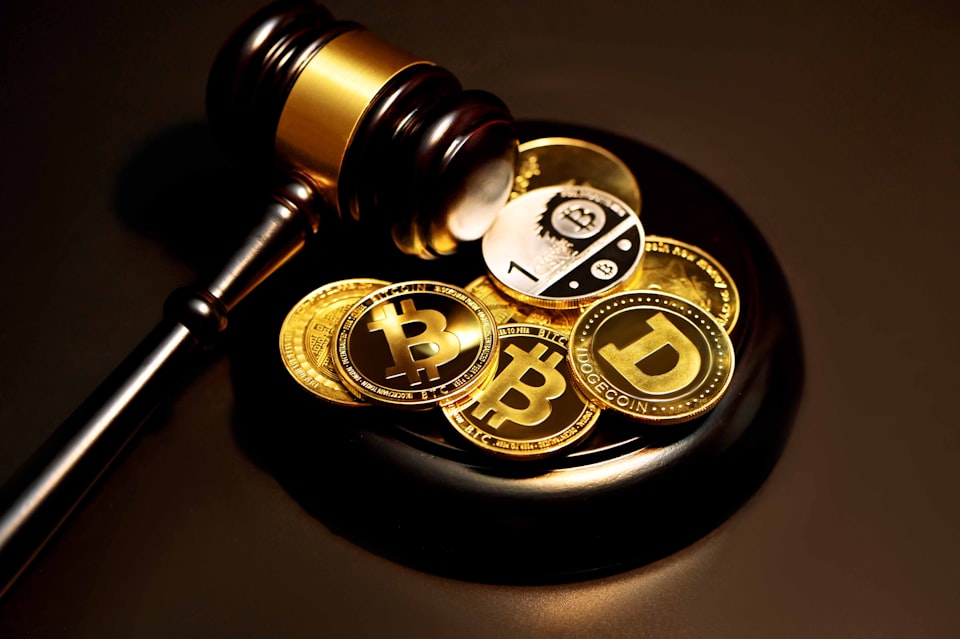
There is continuous discussion among Islamic scholars on the permissibility of cryptocurrencies in Islam, specifically regarding whether they are deemed haram (forbidden) or halal (permissible).
Muslims can make well-informed decisions regarding their participation in this dynamic area by being aware of the arguments made by both sides and keeping up with new trends.
Introduction
Cryptocurrency is a blockchain-based digital payments and currency exchange network. The last few decades have seen a technical and digital transformation that has led to the creation and deployment of novel payment systems. One of the most significant breakthrough payment systems for use in personal and company finance is cryptocurrencies. There is a current discussion among Islamic scholars over the permissibility or otherwise of cryptocurrencies.
This article will look at cryptocurrencies, their emerging trends, and Islamic interpretations of them.
Importance of Halal principles in various aspects of life
Halal values, which translate to "permissible" from Arabic, are fundamental to Islamic living. They offer Muslims guidance in a number of areas and make sure their deeds conform to Islamic precepts. The following are some important domains in which halal principles are relevant:
- Food and Consumption: Muslims adhere to strict rules on what meals are acceptable (such as meat that has been slaughtered in accordance with Islamic procedures) and what is not (such as alcohol or pork).
- Financial Transactions: Islamic finance encourages moral economic conduct and forbids certain practices, such as riba (interest).
- Social Interactions: Fairness, respect, and abstaining from harmful acts are the cornerstones of Halal values, which govern interactions with others.
- Daily Life: Halal principles encourage behaviors that support a moral and healthy lifestyle, from attire selections to personal hygiene.
"Is Cryptocurrency Halal?"
The popularity of cryptocurrency has sparked debate among Islamic scholars on their permissibility. The question of "Is cryptocurrency halal?" is still contentious and complex.
Islamic Finance's Future in Crypto
A unique issue for Islamic banking is the application of blockchain technology to produce digital assets known as cryptocurrencies. This explains why:
Decentralized Nature: Since cryptocurrencies function outside of established banking institutions, concerns of control and regulation are raised.
Potential for Riba: Certain cryptocurrency features, such as lending and staking, may offer interest-like returns. These should be carefully considered in light of Islamic law.
Uncertain Value: Islamic finance seeks to reduce risk, which is exacerbated by the erratic nature of cryptocurrency markets.
Comprehending these facets is crucial in order to effectively navigate the junction between cryptocurrencies and Islamic banking.

Understanding Cryptocurrency
Cryptocurrency is a type of digital payment system. It uses encryption for security. Let's understand the basics of this currency:
- Unlike real money, cryptocurrency is limited to the digital sphere. Despite not being in your hands, you can own and exchange it.
- Cryptocurrencies use a complex coding method called cryptography to secure transactions. As such, they are nearly difficult to forge or overpay for.
- Most cryptocurrencies don't have a single entity in charge of them, like in commercial banking system. They operate on distributed networks supported by computers all around the world.
- Blockchain technology is the foundation of most cryptocurrencies. It is a digital ledger that ensures trust and security while keeping an open record of each transaction.
Here Are a Few Other Points to Consider:
- Digital wallets are required for the management and storage of cryptocurrency. These wallets could be software or hardware-based.
- Mining is the process of creating new bitcoin units. It involves using computers to work out difficult arithmetic problems.
- You can buy and sell cryptocurrencies on online exchanges. But the market is very unstable. Prices can fluctuate rapidly.
History and Evolution of Cryptocurrencies
Despite appearing fresh and in style, cryptocurrencies have a shockingly short yet intriguing history. This is an overview of their development:
Early 1980s:
The concept of cryptocurrencies first emerged in the 1980s. Secure digital currency networks were envisioned by pioneers in cryptography. David Chaum, laid the groundwork for further advancements.
2008 - 2009:
2008 was undoubtedly a noteworthy year. The first decentralized digital currency, was published in a white paper under the pseudonym, Satoshi Nakamoto. It was the emergence of Bitcoin.
The present era of cryptocurrencies began in early 2009 with the creation of the Bitcoin network. The first-ever Bitcoin transaction took place that year.
(2009–2013):
Bitcoin's initial adoption was sluggish. Early adopters, like as libertarians and computer enthusiasts, were drawn to its decentralized structure.
The price of Bitcoin continued to be low, and not many companies took it as payment.
Growth and Unpredictability (2013–present):
2013 saw the beginning of Bitcoin's mainstream popularity. Its price fluctuated significantly. This was an indication of how erratic cryptocurrencies can be.
During this time, alternative cryptocurrencies—also known as altcoins, began to appear. They provided features and functions distinct from those of Bitcoin.
The Current Crypto Landscape:
- The bitcoin market is huge and dynamic right now. There are thousands of different cryptocurrencies. Each has different value and level of use.
- Governments are struggling with the effects of cryptocurrencies on financial systems.
- Regulatory monitoring of cryptocurrencies is growing on a global scale.
- Discussions about how some cryptocurrencies affect the environment since mining requires a lot of energy are still going strong.
Looking Forward:
Cryptocurrency's future is yet unknown. Nonetheless, curiosity and debate are still sparked by its cutting-edge technology and potential to upend established financial structures.
Key Features and Functionalities of Cryptocurrencies
Compared to fiat money, cryptocurrencies offer the following special advantages and capabilities:
- Digital and Decentralized: Unlike banks, which are regulated centrally, cryptocurrencies are only found in the digital realm. Neural networks involve peer-to-peer interactions.
- Security: Transaction security is guaranteed by cryptography. Blockchain technology records and verifies transactions in an immutable public ledger.
- Transparency: Transaction histories may be viewed thanks to blockchain technology.
- Quick and Borderless: Compared to conventional international payments, Bitcoin transactions may be speedier and less expensive.
- Immutability: A transaction cannot be undone or changed once it is registered on the blockchain.
Features of Digital Currencies:
- Medium of Exchange: Cryptocurrencies can be used for online transactions and may eventually be accepted in physical establishments, even though they are not currently widely accepted.
- Store of Value: Because they are small-bundle and decentralized, some cryptocurrencies are regarded as possible stores of value.
- Investment Asset: Cryptocurrencies are a highly variable class of assets that present a high degree of risk along with the potential for enormous rewards.
Benefits and Risks of Investing in Cryptocurrencies
Investing in cryptocurrencies impose a large risk but also gives a huge reward. Here is an insight into understanding the advantages and risks.
Advantages
- Huge earnings: Cryptocurrency investing has the potential to yield large profits. But, previous performance does not imply future results.
- Safeguard Your Money: Some cryptocurrencies can act as a buffer against inflation. This might lead fiat currencies to lose value, because of their limited quantity.
- Accessibility: Anyone with an internet connection can invest in cryptocurrencies.
Risks:
- Cryptocurrency is highly volatile. A slight change in the market trends can result in a huge loss.
- The regulatory framework relating to cryptocurrencies is still being developed. This keeps the investors' unrest.
- There is a high risk involved in each transaction. You could lose everything you own if your bitcoin wallet or exchange is compromised.
- The bitcoin sector is subject to scam and fraud. It is a place where these types of actions occur.
The points To Consider Prior to Making a Bitcoin Investment:
You should take into consideration the following points prior to making a bitcoin investment:
Conduct a comprehensive investigation to recognize:
- The hazards involved in investing.
- Various types of cryptocurrencies
- The technology involved in the transactions.
- Use caution and invest only that amount which you can afford to lose.
- Avoid investing all of your money into a single project.
- Keep yourself updated with the world of cryptocurrencies. It is always changing.
Halal Principles in Islamic Finance
Overview of the principles of Halal finance in Islam
According to Islamic law, a company is not strictly conducting business in a way that complies with Sharia if its assets do not contain an element of suitable loss potential.
Shaykh Shawki Allam, the Grand Mufti of Egypt, and other Shariah scholars from the Middle East and abroad, such as Shaykh Haitham Al Haddad, concur that cryptocurrencies are prohibited. Their reasoning is predicated on the idea that cryptocurrency does not have sufficient legitimacy as a form of payment to be considered halal.
-
Many other Sharia scholars, however, contend that Muslims are allowed to invest in cryptocurrency because the technology itself complies with Sharia financial regulations.
-
Islamic scholars Ziyaad Mahomed, Chairman of HSBC Amanah Malaysia Bhd's Shariah Committee, and Mufti Faraz Adam are among those who think bitcoin money and digital assets are halal. These opinions support the idea that Muslims can make cryptocurrency investments.
-
The fact that the blockchain and other cryptocurrencies are fundamentally anti-interest when viewed from the standpoint of a money-generating source, is one of the key arguments made by Islamic jurists and experts from Muslim nations that cryptocurrencies are permissible.
-
Cryptocurrency functions independently of interest-based transactions and traditional banking institutions.
-
Many Islamic experts consider the technology, price, and buying and selling of cryptocurrency money to be halal, as Islamic banking norms are also anti-interest.
-
Because cryptocurrency is limited, inflation is less likely to affect it. This indicates that it may hold its value reasonably steadily, which is another crucial component of Islamic finance.
Shariah-compliant guidelines in financial transactions
Sharia law provides a set of moral guidelines that govern Islamic finance. The following delineates the application of these ideas to contemporary financial products, encompassing cryptocurrencies:
Fundamental Halal Concepts in Finance:
- Riba Prohibition: It is strictly prohibited to earn interest. Profit-sharing and asset-backed transactions are encouraged under Islamic finance.
- Gharar Minimization: It is not recommended to have too much uncertainty, or gharar. Financial instruments must to be honest and unambiguous about their risks and objectives.
- Ethical Considerations: Investment is not permitted in activities that are damaging or unethical, such as the manufacture of alcohol or gambling.
According to Islamic financial rules, a source of income or an investment in a good or service must fulfill specific requirements in order to be considered halal.
The financial systems in which we operate should be governed by the principles of Shariah law. Muslim scholars have debated whether laws that were established centuries ago can still be applied to a technologically advanced digital financial sector.
Sharia law defines whether cryptocurrency is halal or haram.
Are digital currencies halal?
-
The response is, for many Islamic scholars, a resounding yes. Since shariah is predicated on social fairness, responsibility, and ethics that extend beyond all financial transactions, it can be applied to contemporary crypto analysis and digital currencies.
-
Shariah principles should not be considered to be violated by trading or investing in cryptocurrencies, provided that there is no illicit conduct.
-
When addressing the topic of whether cryptocurrency is halal, one must take Islamic contract laws on account. Specifically, mal must exist. Mal stands for possession and efficient storage, and since cryptocurrencies can be both owned and kept and have a marketable worth, they satisfy the necessary requirements (Mutaqawwam).
-
According to Muslim scholars, the owner of the currency retains ownership, and the coins or tokens are stored in an electronic wallet. This implies that while maintaining ownership over their assets, investors can trade wherever and whenever they choose.
- Cryptocurrency is halal is found in the fact that it is a genuine and legitimate digital asset whose value is determined by the price at which it is purchased.
Additionally, because it can be possessed and exchanged commercially, it satisfies the standards of Shariah.
Application of Halal principles to Modern Financial Instruments, Including Cryptocurrency
Scholarly discussion on the applicability of halal standards to cryptocurrencies is still in its early stages.
-
Before making any digital currencies investing decisions, Muslims should do a lot of research and speak with knowledgeable Islamic authorities.
-
Even if a cryptocurrency is considered halal in theory, responsible investing techniques that reduce risk and encourage moral transactions are essential.
-
Cryptocurrencies has the ability to function in a variety of legally complex and uncertain settings. It is frequently more accessible than traditional financing methods. It is a legitimate type of money with real purchasing power.
-
Cryptocurrencies, like Bitcoin and Ethereum, are considered to be a valid form of payment. They may be used for trade and transactions, even though they are subject to market fluctuations.
-
The creation of cryptocurrency regulations that adhere to Shariah offers Muslims the chance to make moral investments. Islamic charities stand to benefit monetarily from bitcoin investments through Zakat and other donations.
-
Banks and other financial institutions all around the world accept cryptocurrencies as a reliable and secure form of payment. Investors may now purchase, sell, and trade bitcoins more easily as a result.
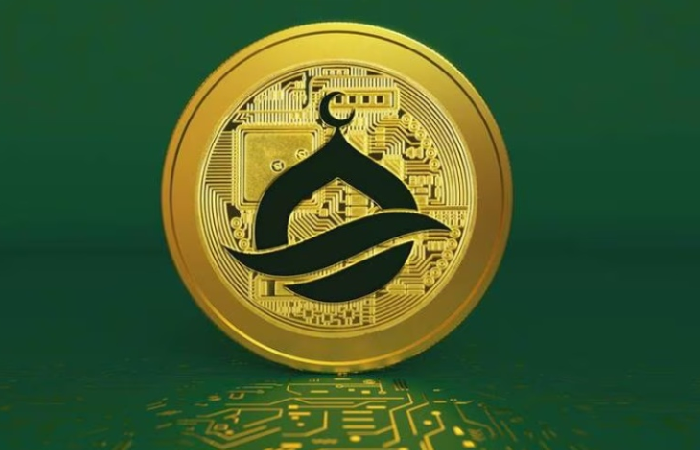
Shariah-compliant cryptocurrency rules for Muslims may become essential given that there are billions of Muslims globally and that number is continually growing.
By conducting our own research, Muslims could determine whether cryptocurrencies are permissible in the context of Islamic financial regulations.
Evaluating Cryptocurrency from a Halal Perspective
This investigation delves into the realm of cryptocurrencies, looking at their technology, suitability for Islamic finances, and frequent worries Muslims have over their halal status.
Exposing the Cryptocurrency's Technology
Digital assets intended to function as a means of trade are known as cryptocurrencies. Crypto operates on a decentralized system known as blockchain and depends on cryptography for security, unlike traditional currencies that are regulated by governments. This is an explanation:
Blockchain: Envision a continuously updated, publicly available digital database of transactions. A safe and open record is created with each new transaction, which is a block added to the chain.
Cryptography: To ensure the security and legitimacy of transactions, cryptography encrypts data using intricate algorithms.
Sharia Compliance: Is Cryptocommodities Compatible with Islamic Finance?
In Islam, the acceptability of cryptocurrencies depends on how well they follow Sharia law. This is how it compares:
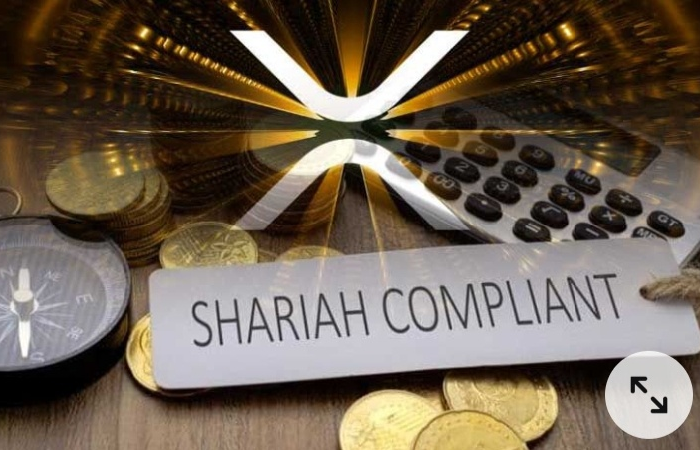
Riba, or interest: Interest is a common component of traditional finance and is forbidden in Islam. But interest in crypto doesn't come naturally.
Gharar (Uncertainty): Excessive ambiguity in contracts is prohibited by Sharia. For other scholars, the erratic character of cryptocurrencies is troubling.
Maysir (Gambling): Excessive risk-taking in speculation is similar to gambling, which is prohibited by Islamic law. It's essential to use ethical trading methods.
Resolving Issues and Misunderstandings:
A lot of Muslims are hesitant to use cryptocurrencies. Let's talk about a few typical ones:
-
Is cryptocurrencies per se prohibited?
A. There isn't just one conclusion. Some academics believe that the underlying technology is acceptable, but others worry about its instability and potential for illicit use. -
Can I exchange virtual currencies?
A. For certain scholars, trading responsibly and staying away from Gharar and Maysir may be acceptable. For more detailed advice, it's advisable to speak with a knowledgeable specialist in Islamic finance. -
Are cryptocurrencies consistent with Sharia law?
A. There are emerging Sharia-compliant cryptocurrency ventures that follow Islamic law.
Before making any cryptocurrency-related financial decisions, it is imperative that you conduct your own study and speak with a certified Islamic scholar.
Contemporary Scholars' Views on Cryptocurrency
Regarding the subject of whether cryptocurrencies are permissible in accordance with Islamic principles, fatwas have been issued by Islamic experts worldwide.
According to the majority of Islamic scholars, cryptocurrency laws do not apply to them. They declared in fatwas that cryptocurrency is forbidden.
These fatwas claim that:
- There is no central authority like a state,
- No legal tender for cryptocurrencies,
- An unidentified issuer,
- Unstable value fluctuations, and
- Ease of usage for illicit activities.
- An excessive amount of electricity is consumed, which raises the problem of legitimacy in terms of wastage.
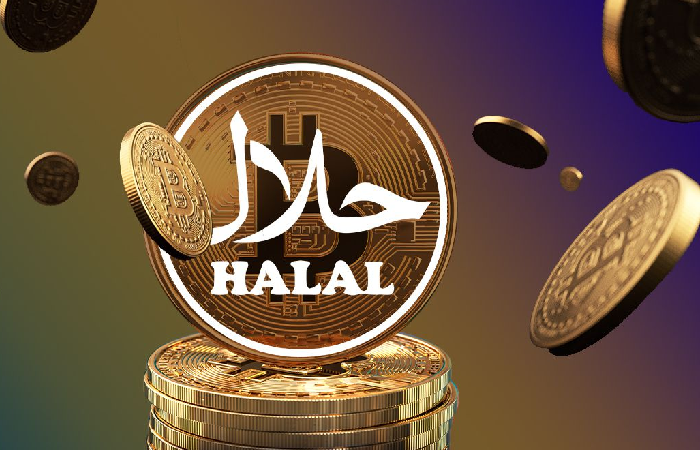
-
Ibrahim Allâm, the Chief Mufti of Egypt, claims that the characteristics of Bitcoin lead to gharar (uncertainty) and jahala (ignorance), which trick the parties concerned and provide unfair gains. Consequently, he declared that these instruments are forbidden by Islam (Allâm, 2017).
-
Abdullah bin Muhammad al-Mutlaq, a member of the Royal Saudi Court, stated that the state guarantee and issuer do not exist. According to him, the rise of cryptocurrencies defies the laws of fiqh and could have disastrous effects if they become independent of a centralized authority. Additionally, he made the point that Muslims have to stay away from these technologies by drawing a comparison between Bitcoin and gambling due to the cryptocurrency's explosive growth and sudden decline in value (El-Mutlaq, 2018).
-
The United Arab Emirates Religious and Charity Institution issued a fatwa stating that national and international authorities should acknowledge the money. Because states do not recognize cryptocurrencies as legal tender, they claimed that they are haram.
-
Scholar like Sheikh Imran Hussain contend that there is no inherent worth to cryptocurrencies and that their volatility leads to an excessive amount of Gharar. To them, the only metals that meet the requirements for Sharia-compliant currency are gold and silver.
-
Cryptocurrency released for different reasons must be assessed to see if it is lawful under Islamic law. Coherent with Islamic law, cryptocurrencies cannot contain aspects that violate the law and instead should be beneficial to society. It is definitely not halal, for instance, to use cryptocurrencies that are issued for drugs, gambling, or riba (usury).
-
By carefully analyzing the white papers, Islamic scholars should disclose the intention behind a cryptocurrency. Once these procedures are completed, a fatwa must be given.
-
Some Islamic scholars believe that bitcoin is legal because they equate the workings of a blockchain network to the ju'alah contract (El-Aqil, 2018).
-
In addition, the miners' efforts to confirm and log each transaction as legitimate. All transactions are authorized, audited, and added to the block in order for miners to complete the blockchain's creation. According to Islamic law, it is acceptable for them to receive payment for all of these services.
Neither the technological advancements nor cryptocurrencies as a whole should be disregarded. These instruments could be used to the Muslims' advantage.
Islamic nations can work together to create halal cryptocurrencies, which will aid in trade and borrowing between the nations. Therefore, cryptocurrency might be a useful tool in Muslim nations.

Emerging Cryptocurrencies: Opportunities and Challenges
Early-stage cryptocurrency projects with distinctive qualities that set them apart from well-known coins like Bitcoin are known as emerging cryptocurrencies.
The following are some trends:
Coins with a privacy focus: These coins place a high priority on user anonymity and use cutting-edge cryptography to conceal transaction details. Zcash, for example
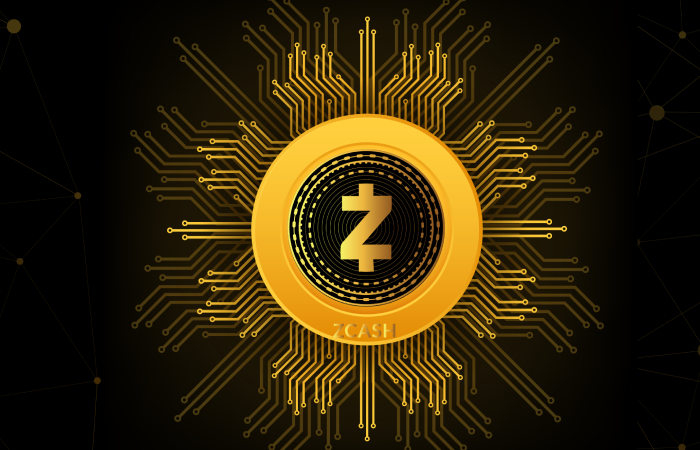
Cryptocurrencies that are sustainable: These initiatives use energy-efficient consensus techniques to reduce their negative effects on the environment. Chadano, for example
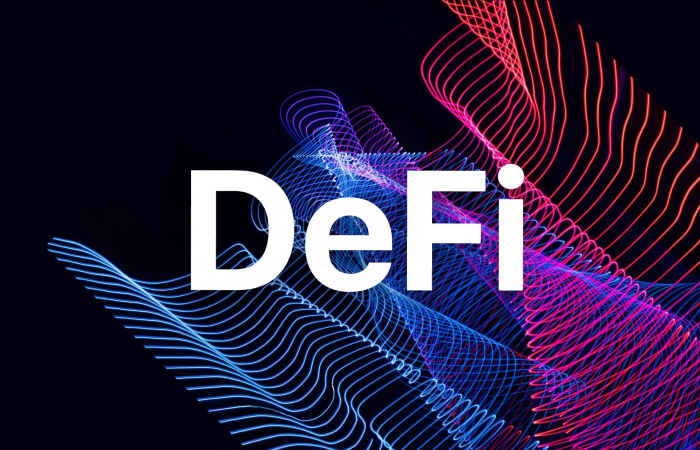
Tokens for decentralized finance (DeFi): These tokens allow lending, borrowing, and other financial operations without the need for middlemen. Uniswap, Aave, etc.
Opportunities for Investment in Emerging Cryptocurrencies
Five new coins to keep an eye on in 2024
$20 DOGE20 Dogecoin - An updated meme currency with Doge-related qualities.
$20 DOGECOIN (Dogecoin) is a meme coin with enhanced functionality that highlights Doge. Hailed as the pinnacle of Dogecoin improvements, $DOGE20 is defined as the iteration Elon Musk would have produced had he introduced $DOGE in 2013.

With the use of the proof-of-stake method in place of Dogecoin's energy-intensive proof-of-work technique, the recently updated Dogecoin takes an eco-friendly approach to the list of meme coins associated to Doges.
Smog Token ($SMOG) is a popular meme coin that focuses on airdrops. The well-known meme coin Smog Token ($SMOG) is based on airdrops. On the Jupiter DEX, $SMOG launched fairly at the beginning of February.

Meme coin enthusiasts were instantly enthralled with it as it quickly gained popularity on well-known trading platforms like DexTools and DexScreener. Through the Zealy campaign, users can progress quests and gather airdrops. The missions entail completing objectives that award airdrop points, such as like particular posts on X and becoming a member of the community.
Soon after its debut, Smog Token made its way onto the Ethereum blockchain via Wormhole, providing users with an additional means of positioning themselves and staking for the chance to earn 42% APY.
($SCOTTY) is a trading platform driven by AI. The cutting-edge artificial intelligence project aims to transform risk reduction, fraud detection, and security through its products, including Scotty Chat and Scotty Swap.

All token swaps are guaranteed to be smooth and optimized for maximum returns thanks to Scotty Swap's AI integration. Additionally, it adds advanced limit orders, which let traders adjust their risk. Scotty Chat helps users keep ahead of trends by providing them with comprehensive industry insights.
Play-2-earn Spongebob Token ($SPONGE) is a meme coin sensation.
The play-2-earn is introduced by the meme coin craze Spongebob Token ($SPONGE). The upcoming $SPONGE V2 meme currency sensation is expected to surpass its predecessor, V1, thanks to its improved marketing strategy and expanded play-to-earn functionality.

Participants in the improvement can take advantage of a special stake-to-bridge utility offered by the project. In order to obtain an equivalent quantity of v2 $SPONGE after the upgrade, consumers must lock their V1 $SPONGE into the bridge.
Green Bitcoin ($GBTC): A platform with high potential for prediction and earnings
Green Bitcoin ($GBTC) is a promising platform with high potential earnings. Users of the platform can forecast the price of Bitcoin by staking their $GBTC tokens and receiving incentives for correct predictions. In honor of the original Bitcoin blockchain, the rewards are given out every ten minutes through the staking rewards pool.

Because most tokens will be trapped in the predict-to-earn environment, analysts believe that a supply shock may be on the horizon due to the Gamified Green Staking mechanism. This could make it difficult for newbies to purchase $GBTC after the presale.
Because of this, this recently formed project has a lot of promise and ought to be on your monitor for 2024.
Evaluating the Halal status of Eemerging Cryptocurrencies
Important Things to Consider:
Underlying Asset: Is the cryptocurrency solely digital, or does it reflect a physical asset like gold? It is usually accepted that ownership of tangible assets is acceptable.
Procedure: How are new coins made? According to shariah standards, excessive uncertainty (gharar) and gambling-like activities (maysir) are not acceptable. Because of its extreme volatility, proof-of-work mining may cause some concern.
Applications: What are the cryptocurrency's main uses? It would not be Halal if it involved any activities related to haram (forbidden) things, such as financing interest or gambling.
What is the Islamic perspective on cryptocurrencies?
Islamic law does not justify the acceptance of bitcoin or any other cryptocurrency as money. It is just an imaginary number that is calculated using a challenging mathematical process. It is purchased for gambling or speculation and used in dubious or illegal businesses.
What is the first cryptocurrency that is Islamic?
The world's first halal cryptocurrency, Bitxgold, is a ground-breaking move for the cryptocurrency community. Bitxgold is a unique digital currency that offers customers a safe and Shariah-compliant investing option because it is fully backed by gold.

What advantages does Islamic Coin offer?
The goal of the cutting-edge and fascinating platform Islamic Coin is to introduce the concepts of Islamic finance to the cryptocurrency community. It provides a number of special characteristics and advantages, such as community emphasis, security and privacy, decentralization, Sharia compliance, and user-friendliness.
What is the backing behind Islamic Coin?
The fact that Islamic Coin is backed by actual assets is a further significant feature. This guarantees that real assets, rather than conjecture or market turbulence, will decide the value of the digital currency.
Where can I purchase Islamic Coins?
The most common place to purchase Islamic Coin (ISLM) is on the KuCoin spot market, which supports over 700 digital assets.
What characteristics does Islamic Coin have?
The Shariah Oracle is a fundamental component of Islamic Coin and the HAQQ Network. This system makes sure that the HAQQ wallet's transactions and smart contracts follow Islamic moral guidelines.
Practical Guidelines for Halal Cryptocurrency Investments
Guiding Principles for Making Sure Cryptocurrency Investments Adhere to Halal law:
- Usury (Riba) Prohibition: Steer clear of cryptocurrency and investing plans with promised or set returns. This can be similar to an account that pays interest.
- Gharar: An Abundance of Uncertainty Minimization: Search for features in the cryptocurrency project that are transparent and easy to understand. Reduce your exposure to coins that are extremely volatile or initiatives that have unclear goals.
- Maysir (Gambling) Avoidance: Stay away from enterprises related to pyramid schemes, gambling, or speculation.
- Underlying item: A cryptocurrency gains additional appeal if it is backed by a material item, such as gold, or if it signifies ownership in a company that complies with Shariah laws.
- Applications for Ethics: Make sure the cryptocurrency isn't used to finance immoral or alcohol-related activities.
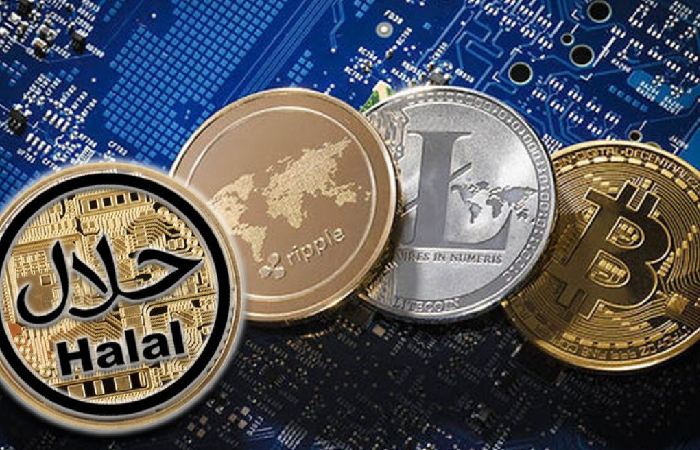
Procedures for Assessing the Shariah Compliance and Legitimacy of Cryptocurrency Projects:
- Examine the project: Recognize the rationale, underlying technology, and practical uses of cryptocurrencies.
- Examine the Whitepaper: The project's objectives, features, and tokenomics—the allocation and application of tokens—are described in this page. Seek for openness and adherence to Islamic principles.
- Seek Scholarly Advice: To determine whether the project complies with Shariah based on the aforementioned factors, speak with an experienced Islamic scholar who is knowledgeable in cryptocurrencies.
- Think About Reputational Aspects: Find out about the project's team's background, expertise, and dedication to moral behavior.
- Advice on Halal Investment and Trading Techniques for Cryptocurrencies:
- Put Utility First: Invest in cryptocurrencies that have a proven use case and promise for positive social impact in the real world.
- Long-Term Strategy: Steer clear of speculative, short-term trading strategies that mimic gambling. Think of cryptocurrency as a long-term investment with a chance for mutual gain and risk.
- Shariah-compliant Platforms: Seek out new cryptocurrency trading platforms that do away with interest-based transactions and concentrate on trading Shariah-compliant assets.
- Zakat Requirements: If you own any cryptocurrency that satisfies the minimum nisab (threshold) standards, keep in mind your zakat duties.
Remember that this information is meant merely as a broad guide. Before making any investing decisions, it is imperative to conduct due research and speak with a knowledgeable Islamic scholar.
Conclusion
- Although cryptocurrencies are a relatively new asset class, experts are still debating whether or not they are acceptable in Islam.
- Important considerations for Halal compliance include Riba (interest), Gharar (uncertainty), Maysar (gambling), underlying asset, and ethical applications.
- The Value of Expertise Making educated decisions requires speaking with certified Islamic scholars and financial institutions that adhere to Shariah.
- By emphasizing usefulness, long-term investment, and moral platforms, Muslims can investigate the possibilities of cryptocurrency while adhering to Halal norms.
Remember that navigating this complicated environment requires asking for information and assistance. Muslims can engage with cryptocurrency safely and ethically by approaching it with an awareness of Islamic principles.
Further Resources and References
Recommended readings, fatwas, and scholarly works on cryptocurrency
https://www.researchgate.net/publication/343614685_Is_Bitcoin_Halal_or_Haram_in_the_Islamic_Banking_and_Finance_An_Overview
https://www.researchgate.net/publication/339842596_Cryptocurrency_as_a_Fin_Tech_Instrument_and_Islamic_Finance_The_GCC_Perspective
https://islamiclaw.blog/2022/04/29/the-syrian-islamic-councils-cryptocurrency-fatwa/
https://ticaret.edu.tr/islam-ekonomisi-ve-ekonomik-sistemler-uygulama-ve-arastirma-merkezi/wp-content/uploads/sites/48/2021/10/JOIFA-5th-Issue-2020-V5-final.pdf
https://mpra.ub.uni-muenchen.de/92676/1/MPRA_paper_92676.pdf
https://www.islamicfinanceguru.com/articles/scholars-who-say-cryptocurrency-is-haram-and-those-who-say-its-halal
https://www.lexology.com/library/detail.aspx?g=6b03a11e-2664-44f4-9837-f72d1f056f2d
https://islamicbankers.files.wordpress.com/2019/02/2017-shariah-analysis-of-bitcoin-cryptocurrency-blockchain.pdf
https://www.islamicfinanceguru.com/articles/scholars-who-say-cryptocurrency-is-haram-and-those-who-say-its-halal
https://institute.iium.edu.my/iiibf/research-and-publication/
https://www.mdpi.com/2227-7072/11/2/76
https://www.sciencedirect.com/science/article/pii/S2405844022016735
https://www.islamicfinancenews.com/
https://www.linkedin.com/pulse/blockchain-cryptoasset-opportunities-islamic-finance-matt-lunkes
https://scholarhub.ui.ac.id/cgi/viewcontent.cgi?article=1043&context=meis
https://www.islamicfinancenews.com/
https://www.ssrn.com/index.cfm/en/Cryptocurrency/
https://www.sarwa.co/blog/is-cryptocurrency-halal









